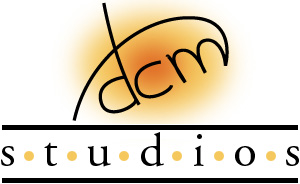

"Small Press" usually refers to what could also be called "do-it-yourself" or "hobby" publishing. Although conceivably any publication or subject matter could be published in Small Press, the term is most often used to denote comics.
"Hey, make your own damn comics!"
-prolific small presser Christopher Paris
Small Press is an excellent vehicle for self-expression, especially of what might kindly be called "minority viewpoints". Don't go looking to Small Press to make money; I have (thankfully) managed to break even on my own Satin Steele enterprise. But if you are (like me) more eager to get your concept out before the public (and a possible following) than trying to make a living off it, then Small Press might just be your ticket.
Basically what happens is that some guy (let's call him "the creator") has a concept he wants to see published (say, oh, a comic book about a heroic female bodybuilder?). For reasons that make sense to him, he doesn't wish to turn his property over to a giant comics publisher which might a.)pervert his vision ("your concept sounds like fun, but let's not draw her with any muscles, mmkay?") b.)make him sign over all rights and interests in his concept with no guarantee he'll see fair compensation for it, or c.) both. Forming his own publishing company is also out of the question: bank loans for startup businesses are hard to obtain; maybe he's a married homeowner with a stable job he isn't able to give up to devote his full attention to running a full-time (and more) business; maybe the nuts and bolts of running a business just don't appeal to him. Sure, publishing his concept in a full-size "real" comic book that people could just buy off the shelf in a store is appealing, but minimum print runs of 500 to 1500 copies just aren't economically feasible, and if the distributor doesn't want to carry his book (or carry it in enough volume to make it profitable), then he's got to devote a lot of closet space to boxes of unsold comics.
But, if the creator could print up just enough copies to fulfill the moment's demand; if he could publicize his book through channels that would be free or minimal cost, that would more closely target his intended readership; if he can then avoid high overhead costs so that his book breaks even; then this is a more desirable outcome. This is Small Press.
[Which is not to say that Small Press can't be a springboard to "professional" publication. Small Press provides an excellent opportunity to practice and hone one's writing or artistic chops before trying to break into the "pro" market. Indeed, since the larger comics publishers are for the most part no longer publishing "anthology" titles (such as DC Comics' "House of Secrets") which used to provide the training ground for novice artists and writers, Small Press may be the only training ground left. Steve Roman first published Lorelei as a Small Press digest before forming a publishing company to bring his book to the comics mainstream.]
To illustrate with a specific case... my own: I take my finished pages down to a self-service Xerox copy store like Kinko's, where I reduce the art down to printed size, paste them up in the proper pagination, and print copies of the book. I advertise Satin Steele mainly through ads in the "Comics Trader" section of the Comics Buyer's Guide, a weekly newspaper devoted to the business and hobby of comics publishing and collecting. (According to a recent CBG, cover date September 29, 2000, a "Comics Trader" ad, $43.00, gets you a 3 1/4 by 3 1/4" space; by comparison, a full-page ad 10" by 11"in CBG would run $530.00). Satin Steele is also publicized on Diana the Valkyrie's web site, and a few years ago I was able to get some artwork from the comics and contact information featured in MuscleMag International and Muscular Development magazines. Every few days or so, I revisit the copy shop to print as many copies as are needed to fill orders. I try to keep a few copies on hand for trading with other Small Pressers.
What size should the finished comic be? Depends on your own judgement. Most Small Press comics produced today are of "minicomic" size, about 4 1/4 by 5 1/2"; in this format an eight-page comic book can be printed on a single sheet of letter-size paper. When I first began publishing Satin Steele, I used "digest" size, 5 1/2 by 8 1/2" (a letter-size sheet of paper folded in half); I switched to "magazine" size (8 1/2 by 11", an 11 by 17 sheet folded in half) to better show off my artwork.
©2000 David C. Matthews.